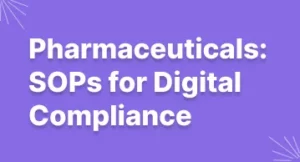What is ISO 13485 Certification?
ISO 13485 certification is an internationally recognized set of standards aimed at ensuring that medical device manufacturers have implemented stringent quality control processes in the manufacturing and distribution of their products. The certification provides assurance to patients, customers, and regulators that a manufacturer is meeting their demands for quality control.
Having ISO 13485 certification is an important step for medical device manufacturers, as it guarantees customers and regulators that their processes are in place and they are continually striving for product quality. The certification is valid for three years and requires regular maintenance and auditing to ensure that the manufacturer is following the required standards.
Why Is ISO 13485 Certification Important?
ISO 13485 certification is an assurance that medical device manufacturers are producing safe and reliable products. This certification helps to protect patients and customers by promoting the highest standards for design, manufacturing, installation, commissioning, and servicing of medical devices. It also ensures that a manufacturer has the resources, processes, and personnel necessary to provide their customers with quality products.
For medical device manufacturers, adherence to ISO 13485 certification is also important for the reputation of their business. Having this certification will boost customer confidence in their products and services, as well as show that they are committed to providing high-quality products.
Benefits of achieving ISO 13485 Certification
Having the ISO 13485 certification demonstrates that a business has the necessary processes and procedures in place to meet customer demands for products and services of the highest quality.
ISO 13485 is the standard for implementing and managing a quality management system (QMS) specifically for medical device production and related services. By meeting these standards, businesses gain access to the global marketplace and create a competitive edge over others who don’t have the same certification.
The certification verifies that a business has the processes and procedures necessary to ensure that products meet customer requirements and are consistent in terms of quality. Furthermore, the adoption of ISO 13485 requires continuous improvement of processes and procedures so that product quality can be continually monitored and improved upon.
Requirements for ISO 13485 Certification
Organizations looking to achieve ISO 13485 certification must meet certain criteria and requirements, including:
- Implementing a Quality Management System (QMS) that complies with the ISO 13485 standard
- Ensuring that the organization has a strong system of internal audits to verify and validate its processes and procedures
- Maintaining records related to the ISO 13485 certification process, such as design reviews and production activities
- Having an effective method of communication between all personnel involved in the certification process
- Developing and implementing corrective and preventive actions (CAPAs) to address any non-conformities
- Creating and adhering to training protocols and staff competency requirements
- Complying with applicable laws and regulations
ISO 13485 certification is a rigorous process that requires organizations to demonstrate their ability to consistently meet customer expectations. By meeting the requirements of the ISO 13485 standard, organizations can ensure they are providing high quality products and services.
Benefits of Implementing Quality Management Systems
Implementing quality management systems according to the ISO 13485 standards can prove to be a major advantage to your organization. This system helps you identify, standardize and document processes associated with the production of goods and services. When done correctly, an ISO 13485-compliant system will help your business save time and money, while ensuring that products are safe and of good quality.
A quality management system should include effective processes for monitoring and controlling all aspects of production. By implementing metrics and feedback loops, you will have a better understanding of how your organization is operating and you can quickly make adjustments as needed. Additionally, the system allows you to easily identify and address potential problems before they become costly issues, which can help your business operate more efficiently.
Furthermore, having an ISO 13485 compliance system in place will help your organization maintain compliance with global safety standards. This helps you demonstrate your commitment to quality and safety to customers, suppliers, and regulators. This, in turn, can provide businesses with a competitive edge in the market and help attract new customers.
Reasons to Adopt an ISO 13485 Quality Management System
For businesses keen on quality and risk management, achieving ISO 13485 certification is essential. ISO 13485 is an internationally recognized standard that sets guidelines for quality management systems specifically designed for medical device manufacturers and distributors. It requires organizations to meet certain quality management system requirements in order to be certified.
Adopting and implementing the ISO 13485 standard can bring several benefits to your organization, including:
- Improved visibility and control over your processes and operations.
- Greater customer satisfaction due to ensured product safety and efficacy.
- More efficient processes and streamlined operations.
- Reduced risk of product recalls and legal liabilities.
- Increased market share as more customers may prefer a company with certified products.
- Enhanced reputation due to a demonstrated commitment to quality.
Common Implementation Pitfalls
When implementing the ISO 13485 standard, organizations need to be aware of some common pitfalls. Some of these include:- Inadequate training of personnel on the standard
- Failing to involve all stakeholders in the implementation process
- No clear implementation plan and timeline for completion
- Insufficient staff resources to complete the job within the timeline
- Skimping on quality control
- Lack of commitment from top management
- Failure to monitor performance and identify areas of improvement
It is important for organizations to plan ahead and to anticipate potential problems that may arise in the process of implementing the ISO 13485 standard. As such, it is essential to involve all key stakeholders in the planning process and ensure adequate resources are available. Additionally, establishing clear timelines and taking the necessary steps to ensure quality control are key components of a successful implementation of the ISO 13485 standard.
Real-Life Examples of Organizations That Have Implemented ISO 13485
ISO 13485 certification is an essential requirement for companies that produce medical devices. ISO 13485 sets out the necessary requirements to ensure the quality, safety and performance of a medical device. Here are some real-life examples of organizations in different industries that have successfully implemented ISO 13485 certification:
- ABC Medical Solutions – ABC Medical Solutions is an American company that specializes in producing medical devices for the healthcare industry. They successfully implemented the ISO 13485 certification and are now certified according to the standard.
- XYZ Technologies – XYZ Technologies is a major technology company from the United Kingdom. They produce a variety of products ranging from computers to medical devices. As such, they had to obtain ISO 13485 certification in order to comply with the industry standards.
- 123 Enterprises – 123 Enterprises is a leading manufacturer of medical devices in Europe. As part of their commitment to quality, they earned ISO 13485 certification to demonstrate their adherence to the highest quality standards.
These examples demonstrate how organizations from different industries can benefit from implementing the ISO 13485 certification. In addition to providing quality assurance, it also instills a sense of trust among customers.
Processes & Procedures Necessary to Implement the ISO 13485 Standard
Achieving ISO 13485 Certification requires a company to have processes and procedures in place that meet the standards set forth by the organization. These processes and procedures should be designed to ensure compliance with the requirements of the standard and should be adapted as needed to ensure continued compliance.
Some of the processes and procedures necessary for ISO 13485 Certification include:
- Establishing a quality management system that meets the standard’s requirements
- Designing a product development process that follows the technical requirements of the standard
- Implementing preventive and corrective actions that adhere to the standard’s requirements
- Establishing and maintaining customer-supplier relationships that follow the standard’s guidance
- Creating an audit program that is conducted by internal and external auditors
- Generating documentation and records that are compliant with the standard
- Carrying out management reviews to ensure compliance with the standard
These processes and procedures must be tailored to the individual organization and its products and services to ensure that they are properly implemented and followed. It is important that these processes and procedures are regularly reviewed and updated as needed to maintain the organization’s ISO 13485 Certification.
Tools & Technology Used to Help with ISO 13485 Standard compliance
Organizations seeking to comply with ISO 13485 Standard often use a range of tools and technologies to help them achieve certification. The benefits of using these technologies include improved consistency, accuracy, and traceability in the processes associated with achieving compliance.
The most commonly used tools and technology for ISO 13485 certification are:
- Quality Management Systems Software – Quality Management Systems are critical to ensuring ISO 13485 compliance. Using software to track and manage processes is essential for meeting the necessary requirements.
- Electronic Document Management System (EDMS) – An EDMS helps organizations maintain all the necessary documentation required to demonstrate compliance. This can help to quickly locate documents and ensures that versions used are up-to-date.
- Audit Management System (AMS) – An AMS helps to record and control the audit process, from planning to execution. This helps to ensure that all audits are conducted in accordance with the ISO 13485 Standard.
By utilizing the right tools and technologies, organizations can improve their efficiency and accuracy when it comes to ISO 13485 compliance.
Security & Compliance Requirements for an ISO 13485 Certified System
ISO 13485 certification requires organizations to ensure that their quality management system is secure and compliant with the corresponding regulations. Organizations should have a comprehensive security policy in place that covers data access, encryption, authentication, physical security, and other related topics. Additionally, organizations must have appropriate measures in place to ensure that all employees comply with the security policy.
Organizations that wish to obtain and maintain ISO 13485 certification must also be aware of the applicable regulatory requirements. It is important to understand which regulations apply to the organization and which processes must be implemented in order to remain compliant. Compliance can be monitored by regularly reviewing and updating procedures as needed. A comprehensive risk assessment should be conducted periodically to identify potential risks and develop plans to address them.
For organizations that have successfully achieved ISO 13485 certification, there are certain best practices for keeping up with compliance standards. Monitoring and maintaining ISO 13485 compliance is essential for businesses to ensure that they remain certified. The following are some of the best practices for monitoring and maintaining ISO 13485 compliance:
- Develop a Quality Management System thatdetailed documentation and procedures.
- Document any changes made to your quality management system.
- Conduct regular internal audits to ensure that processes are being followed correctly.
- Take corrective action when necessary to address any non-conformances.
- Carry out periodic reviews of quality objectives to ensure that they are being met and is relevant to the current needs of the business.
- Undertake regular staff training programs related to ISO 13485 to ensure that all employees are up to date with the latest requirements.
- Stay informed of any new legislation or updates related to ISO 13485 standards.
By properly implementing these best practices, organizations can be sure that they are staying within the bounds of ISO 13485 compliance. Additionally, it is important for companies to continually review and update their quality management systems to make sure that they remain effective and efficient.
The Importance of ISO 13485 Certification
ISO 13485 Certification is an internationally-recognized quality management system for medical device manufacturers and related organizations. It provides a standardized set of requirements and processes that help ensure the safety, effectiveness, and quality of medical devices and their related activities. This certification helps to protect customers and patients by ensuring that rigorous quality standards are met throughout all areas of production and service delivery.
Obtaining ISO 13485 Certification is an important part of any medical device manufacturer’s commitment to excellence. By meeting these standards, organizations are better able to demonstrate their commitment to high-quality products and services that meet the needs of their customers. Additionally, it provides assurance to healthcare providers, regulatory agencies, and other stakeholders that the products are safe and effective for use.
There are numerous benefits to ISO 13485 Certification, including improved operational efficiency, reduced costs, increased customer confidence, and enhanced product quality. These benefits help to ensure the continued success of any medical device company.
Frequently Asked Questions (FAQs) about ISO 13485 Certification
1. What is ISO 13485 Certification?
ISO 13485 Certification is an international standard that outlines quality management systems specific to the medical device industry. It is designed to help organizations demonstrate their commitment to regulatory requirements, as well as customer and patient safety.
2. What are the Benefits of Achieving ISO 13485 Certification?
Achieving certification helps to ensure compliance with international Medical Device Directives, while also demonstrating a company’s commitment to the highest quality standards. Other benefits include improved performance, process optimization, cost savings, and increased customer satisfaction.
3. What are the Requirements for ISO 13485 Certification?
Organizations must implement a quality management system compliant with the ISO 13485 standard. This requires methods to plan, implement, document, maintain, and improve activities related to the design, production, installation, and service delivery of medical devices. Other requirements include Risk Management, design control, product traceability, customer communication, and complaint handling.
4. What are the Benefits of Implementing Quality Management Systems?
Quality Management Systems (QMS) help organizations to consistently produce products and services that meet customers’ requirements the first time and to continually improve overall performance and customer satisfaction. QMS also ensures regulatory compliance, reduces wastage, and improves organizational efficiency.
5. What are the Reasons to Adopt an ISO 13485 Quality Management System?
ISO 13485 quality management systems provide organizations with improved internal processes and controls, allowing them to proactively address customer safety and regulatory requirements. Compliance with this standard can also increase customer confidence, reduce operational costs, and help organizations stand out among their competitors.
6. What are Common Implementation Pitfalls?
Common pitfalls of implementing an ISO 13485 QMS include inadequate training, underestimating the time and resources required, and failing to develop suitable metrics and performance indicators. Additionally, organizations can easily become mired in bureaucratic procedures and fail to drive improvement within the organization.
7. Are there any Real-Life Examples of Organizations that Implemented ISO 13485?
Yes, several organizations have successfully implemented ISO 13485, including Philips Healthcare, 3M Health Care, Smith & Nephew, Baxter International, and Johnson & Johnson.





